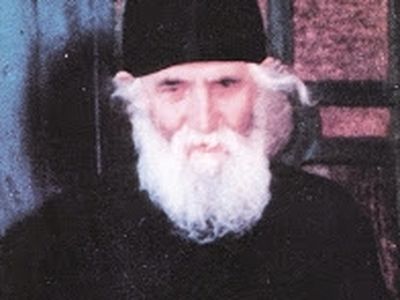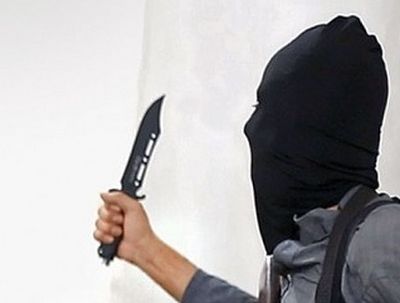On October 7, 2015, a public campaign to support the parents whose children went to participate in jihad was launched in France. It was initiated by four families who had gone through this drama and who still cannot understand their children’s choice, reports RFI.
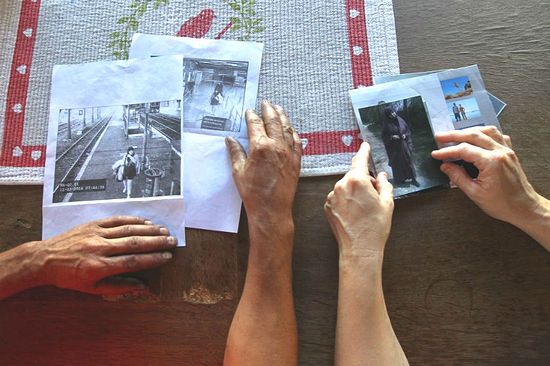 Parents are looking at the image of their daughter made by a surveillance camera at a train station on October 2, 2014. On the following day she left for Syria. Photo: AP
Parents are looking at the image of their daughter made by a surveillance camera at a train station on October 2, 2014. On the following day she left for Syria. Photo: AP
The French Ministry for Internal Affairs has supported this initiative and one-minute videos in which such parents relate their stories and have been broadcast by all the French radio and TV channels since October 7. None of these parents suspected their children had any such plans. And none of them have seen their children since they disappeared.
Batiste: “On the day of Lea’s departure, the weather was fine. She took only a rucksack and a scarf along. And we have not seen her since then. We did not notice and did not understand anything.”
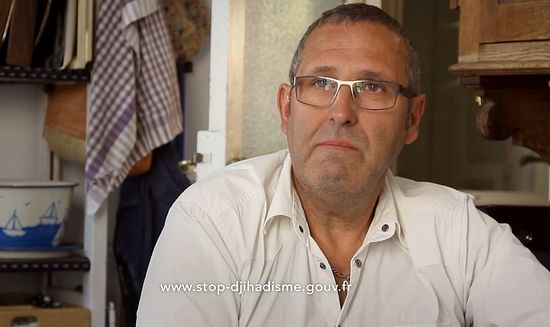 Batiste: “On the day of Lea’s departure, the weather was fine. She took only a rucksack and a scarf along. And we have not seen her since then. We did not notice and did not understand anything.”
Batiste: “On the day of Lea’s departure, the weather was fine. She took only a rucksack and a scarf along. And we have not seen her since then. We did not notice and did not understand anything.”
“Then she herself called us. She said: ‘Mommy, daddy, I know that it will hurt you, but I came to Syria and joined jihad.’ And we felt we were losing the very ground under our feet. She gave birth to a baby since then. Our daughter has chosen a life amid war. She looked for a better life, but I believe she has found hell. They have stolen our daughter from us. We are not parents of terrorists, we are their victims.”
That was Batiste Boirolen, Lea’s father. The girl’s mother, Valerie, has written a book on how her daughter over several months changed from a cheerful teenager, who used to dance to the music of Rihanna and Beyonce, to a radical Islamist.
Lea, 17, met a radical Islamist via a social network. The name of this jihadist was Abdul Wadud, a speaker of the “Islamic State” terrorist group. After a short period of communication she decided to move to him and live in Syria. The parents did not notice how their daughter changed. Later they learned that the girl hid her paranja in the rucksack and wore it only when she left her house. The director of Lea’s practical training course saw the sudden change in the girl but told her parents nothing about it.
After the publication of her book, Valerie Boileron met with other parents who got in the same situation in spite of themselves. For absolutely all of them, their children’s departure was a great shock. Likewise, for Veronique her 23-year-old son had been an antiglobalist, but by no means a terrorist… Until they received the sad news from Syria.
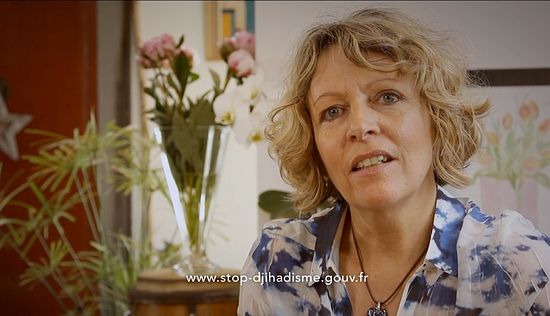 Veronique: we do not know exactly where he is now and what he is doing. We cannot come and take him either. I cannot embrace or kiss him any more.
Veronique: we do not know exactly where he is now and what he is doing. We cannot come and take him either. I cannot embrace or kiss him any more.
Veronique: “Our son lived in a considerably privileged environment. He liked music, sports and always joked. And this is very hard to understand. We had spent a splendid weekend before he disappeared. I fried pancakes, and all the family sat at the holiday dinner.
His brother was near him, we all laughed. He said he was going to Germany. So he left the following morning and never returned. And it was only a month later that we learned that he was in Syria. We do not know exactly where he is now and what he is doing. We cannot come and take him either. I cannot embrace or kiss him any more. That is terrible. It is very difficult to express what we feel now. Presently we can hardly say the truth: others do not understand us properly and take us negatively. But we cannot stay alone in such a situation. The worst thing now is to be silent. We need help because we are in bitter grief.”
The producer of these short videos Fabienne Servan-Schreiber has said that anyone could end up in these parents’ situation.
Fabienne Servan-Schreiber: “In these reels we wanted, first of all, to show the suffering of families, suffering of parents whose children have gone to fight in Syria.
Because it is terrible: to be unaware of what is happening with them and to know that they are in permanent danger and are suffering very much as well. Also we wanted to show that these parents are not alone. The whole country is thinking of them and trying to support them. In one of these videos a father says: “We are not parents of terrorists, we are their victims.” This is what is taking place in reality. The youths who have gone to Syria are of various social and religious backgrounds. There is no universal profile here. It may happen to anybody, to any family from our milieu. That is why we need to be vigilant and to grasp this phenomenon.”
At the end of each clip a telephone number appears on the screen that parents are expected to call if they fear that their children have been converted to radical Islam. Over the first year of its existence, over 3000 families appealed to this service. Furthermore, 20 percent of 3000 applications referred to underage children, and the majority of them were girls. According to the French Ministry for Internal Affairs, around 1,500 French citizens are linked to the network of jihadists of the “Islamic State”, more than 500 Frenchmen are currently fighting in Syria and Iraq, and over 100 French fighters have been killed there.
“We are fighting a very hard battle,” admits The Interior Minister of France Bernard Cazeneuve regarding the launching of the “counterpropaganda campaign” against ISIS, which is spreading it call on the Internet every week. How can we identify the teenagers who believe these calls? How can we understand what is happening to them, if they do not inform their parents at all? This is also a part of the campaign launched in France on October 7.
“To prevent it while it is still not too late,” says Saliha Ben Ali who lives in Belgium. She has established in her country “The Society against Violent Extremism” of the parents who have undergone the same tragedy.
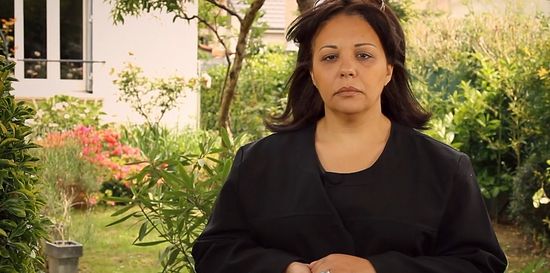 Someone called Saliha’s husband from a Syrian number. He was happy: at last his son was calling! But an unknown voice “congratulated” him that his son became a shahid.
Someone called Saliha’s husband from a Syrian number. He was happy: at last his son was calling! But an unknown voice “congratulated” him that his son became a shahid.
Saliha Ben Ali: “He (her son) got involved with people whom he should have never met. These individuals are constantly searching for new victims.”
Saliha Ben Ali: “My son Sabri went to Syria in August 2013. When I read these words of his, written on a piece of paper: ‘Mommy, I am in Syria’, I had only one thought: His words mean: “Mommy, I am dead”. I said to my husband: ‘Our son has died’. He replied: ‘No, he is in Syria’. But I knew that it meant death. He got involved with people whom he should have never met. These individuals are constantly searching for new victims. My son did not reach the age of 19. One day my husband went out for a walk on the street. Someone called him from a Syrian number. He thought: ‘At last my son is calling!’ The husband answered, but it was a Syrian man who congratulated him that his son had become a martyr. And when you learn about your child’s death, they do not even tell you his or her name because they are given the fighters’ new names. It is as if you are no longer the parents of your own child. It does not matter where you are from or what your religion is—this can happen to anybody.”

